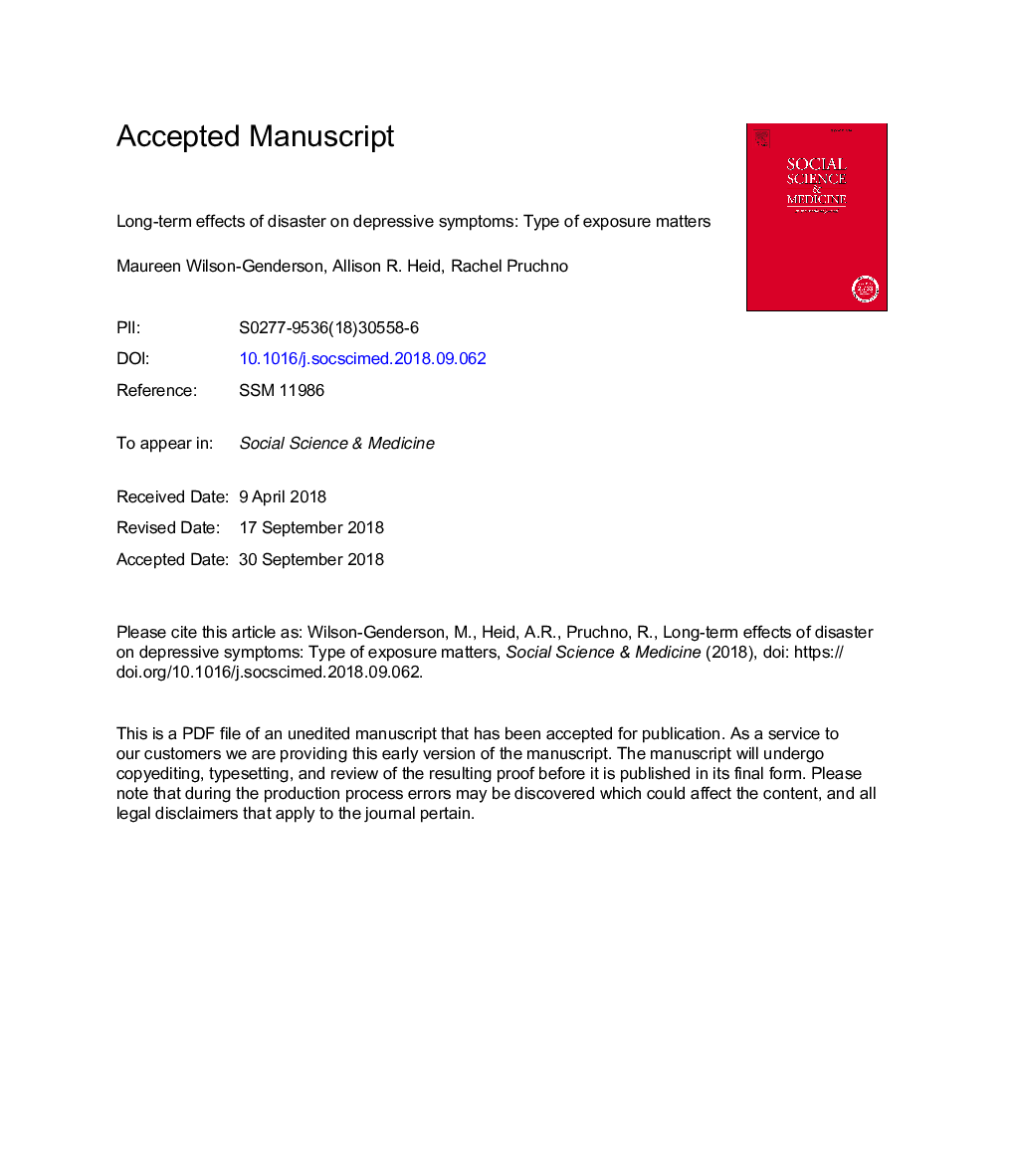| Article ID | Journal | Published Year | Pages | File Type |
|---|---|---|---|---|
| 11017474 | Social Science & Medicine | 2018 | 35 Pages |
Abstract
As nearly 20% of people in the United States will experience a natural disaster during the course of their lives, it is critical to understand how disaster exposure can influence mental health because each type of exposure demands a different response. Finding that an individual's emotional response during the disaster plays an important role in the development of depressive symptoms suggests that reduction of exposure to traumatic stress during a storm (i.e., evacuation from a storm area) is important for older people. Likewise, immediate interventions following a disaster that target people experiencing high levels of peri-traumatic distress may be particularly effective and that failing to attend to these people may miss a critical opportunity and result in years of suffering.
Related Topics
Health Sciences
Medicine and Dentistry
Public Health and Health Policy
Authors
Maureen Wilson-Genderson, Allison R. Heid, Rachel Pruchno,
